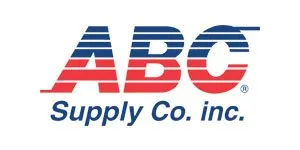Texas laws require policyholders to pay their insurance deductibles and prohibit contractors from waiving or absorbing them. Insurers can demand proof of deductible payment before releasing claim funds. Violations by contractors can result in criminal charges, ensuring transparency and protecting consumers from fraudulent practices.
In this guide, SCR, INC. General Contractors explains Texas laws on insurance deductibles in detail to help you avoid insurance fraud.
If you still have more questions about roofing insurance deductibles in Texas, call 972-839-6834. Our roofing contractor will answer all your questions and provide more professional assistance.

Under Texas law, policyholders must pay any deductible applicable to a first-party claim made under their property insurance policy. When you file a claim, you must cover the deductible amount before your insurance company pays for the remaining repair or replacement costs.
The Texas Business & Commerce Code, particularly Section 27.02, prohibits contractors from offering to waive, absorb, or otherwise offset your insurance deductible. It is illegal for contractors to entice customers with promises to cover the deductible as part of their service agreement. Engaging in such practices can result in a Class B misdemeanor charge against the contractor.
Texas insurance companies have the right to require reasonable proof that you have paid your deductible before they release the full payment for your claim. Acceptable forms of proof include:
If the insurer does not receive proof of deductible payment, they may refuse to pay the claim for the withheld recoverable depreciation or replacement cost holdback.
In coordination with other state agencies, the Texas Department of Insurance (TDI) is tasked with educating consumers and service providers about the requirements related to insurance deductibles. This education program includes information on the legal obligations of policyholders to pay deductibles and the illegal nature of deductible waivers by contractors.
In 2019, Texas passed House Bill 2102, further clarifying and enforcing these regulations. The amendments to the Texas Insurance Code and Business & Commerce Code ensure that:
Understanding and following these Texas laws on insurance deductibles helps ensure compliance and protects consumers and contractors from legal issues and potential fraud.
An insurance deductible is the amount you must pay out-of-pocket before your insurance company starts to cover a claim.
Generally, a higher deductible reduces your policy’s premium but increases your out-of-pocket expenses in case of a claim. Choosing a deductible that fits your financial situation and risk tolerance is crucial.
In homeowners insurance policies, a deductible is an amount you must pay out-of-pocket before your insurance company covers any costs for a claim. The deductible can be a specific dollar amount or a percentage of your home’s insured value. For example, if your home is insured for $150,000, a policy with a $500 deductible means you pay the first $500 of any claim. Conversely, a 5% deductible would mean you pay $7,500 out-of-pocket.
Here’s how it works in practice:
Deductibles are applied to each claim individually, meaning if you have multiple claims in a year, you must pay the deductible amount for each one. Choosing a higher deductible can lower your premium, but it also means you will pay more out-of-pocket if you need to file a claim. Selecting a deductible amount that aligns with your financial capability and risk tolerance is essential.
A 2% deductible in an insurance policy means you are responsible for paying 2% of your home’s insured value out-of-pocket before your insurance company covers any claim costs. This type of deductible is often used in homeowners insurance policies, particularly for storm damage caused by certain perils such as windstorms or hurricanes.
To calculate a 2% deductible, follow these steps:
200,000×0.02=4,000200,000 \times 0.02 = 4,000200,000×0.02=4,000
In this example, your deductible would be $4,000. This means if you have a claim, you must pay the first $4,000 out-of-pocket before your insurance covers any additional costs.
Understanding how to calculate and manage a percentage-based deductible helps ensure you make informed decisions about your insurance coverage and financial preparedness.
A roof payment schedule refers to the payment structure set by your insurance company for roof repair or replacement costs. This schedule dictates how and when payments will be made, whether in a lump sum or installments and under what conditions. Understanding this schedule is crucial, as it impacts the timing and amount of your out-of-pocket expenses, including your deductible.
Does the Payment Schedule Change My Deductible?
No, the roof payment schedule does not change your deductible. Your deductible remains a fixed amount or percentage as specified in your policy. Here’s how it works:
If roof repairs cost $10,000, you pay the first $4,000 (your deductible), and the insurance covers the remaining $6,000. If your policy includes a depreciation holdback, you might initially receive less than $6,000, with the rest paid once repairs are verified.
Understanding your roof payment schedule helps you manage expectations and financial planning when dealing with roof repairs, ensuring you meet your deductible and comply with insurance requirements.
In Texas, it is illegal for contractors to help you avoid paying your insurance deductible. Some contractors may offer to waive, absorb, or reimburse your deductible as an incentive to earn your business. This could include providing free or discounted goods and services to offset the deductible. However, such practices are prohibited under Texas law.
The Texas Insurance Code and Business & Commerce Code amendments make it a criminal offense for contractors to engage in these activities. Contractors who advertise or promise to cover your deductible can face Class B misdemeanor charges. Additionally, insurers can refuse to pay your claim until you provide reasonable proof that you have paid the deductible, such as a canceled check, money order receipt, or credit card statement.
Complying with these laws is important to avoid legal complications and ensure your insurance claims are processed smoothly. If a contractor offers to help you avoid paying your deductible, they are breaking the law, and you should report such actions to the Texas Department of Insurance.
If a contractor offers to waive your deductible, it is important to recognize that this practice is illegal in Texas. Here’s what you should do:
Following these steps ensures that you remain compliant with Texas laws and protect yourself from potential legal and financial complications. Always prioritize working with reputable contractors who respect legal requirements and offer quality service.
If you cannot meet your deductible in Texas, it is important to understand that state laws require policyholders to pay their insurance deductibles for claims. Here are some steps you can take if you find yourself unable to pay your deductible:
It is illegal for contractors or service providers to waive or absorb your deductible in Texas. Always adhere to the legal requirements to avoid potential issues with your insurance claims. If you need further assistance, consider contacting the Texas Department of Insurance for guidance and support.
At SCR Inc., we specialize in assisting with denied insurance claims, ensuring you receive the compensation you deserve. Our team, comprising former insurance adjusters, provides expert guidance through the complex claims process.
We emphasize strict adherence to Texas insurance deductible laws, ensuring all claims are compliant and valid. If your hail or storm damage claim has been denied, contact us for a thorough assessment and documentation of your loss. We are committed to overturning denied claims, leveraging our extensive experience and professional network to restore your property effectively and fairly.
Call 972-839-6834 for expert assistance with denied roofing insurance claims.

Yes, it is illegal to absorb deductibles in Texas. According to the Texas Business & Commerce Code, it is a criminal offense for a construction contractor to offer to pay, waive, absorb, or offset a policyholder’s deductible for a property insurance claim. Contractors in this practice can be charged with a Class B misdemeanor.
Yes, waiving an auto insurance deductible in Texas is also illegal. Like property insurance, any attempt by an auto repair service to waive or absorb an auto insurance deductible is against the law. The Texas Business & Commerce Code criminalizes such practices to ensure that policyholders pay their deductibles as their insurance policies require.
In Texas, insurance deductibles cannot be waived. State laws mandate that policyholders are responsible for paying their deductibles when making a claim. Any offer to waive or absorb the deductible by service providers, such as contractors or repair shops, is illegal and can result in criminal charges.
Proof of payment for deductibles in Texas can include:
Insurance companies may refuse to pay a claim until they receive reasonable proof that the policyholder has paid the deductible.





